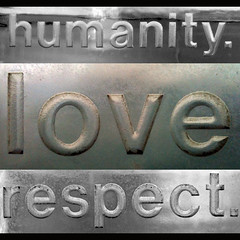[Content Note: Brief references to of cults, homophobia, self-hatred, and authoritarian control.]
Happy Monday, dear readers! I thought I’d take a brief break from my polytheology series to talk about a book I recently finished reading. That book is An Apostate’s Guide to Witchcraft: Finding Freedom Through Magic by Moss Matthey. In it, Matthey describes his own experiences leaving the cult he was raised in and finding a home in witchcraft. Along the way, he shares a bit about his own witchcraft practice and offers advice and simple exercises to those readers who might be interested in exploring whether witchcraft might be something they’re drawn to.
In a lot of ways, I found a lot of Matthey’s story relatable. After all, we are both gay men1 who grew up in fairly conservative Christian church2 that essentially taught us to hate ourselves. We both eventually found freedom in our respective witchcraft practices, which bear some unsurprising similarities.
One of the things that I appreciated about Matthey’s approach to the subject was that he was quite clear that he had no interest in spending a great deal of time dissecting the beliefs of “the cult”,3 setting these goals for the book instead:
Through these pages I will introduce you to a world of magic and spirits, where queerness is celebrated and sin does not exist. I will tell you how I left a cult and the lessons I learned along the way. Culture and community will be celebrated through folklore, myth, and folk magic. We may even take a detour into theology and philosophy, though hopefully it won’t be too boring. Above all, we will celebrate the joy and freedom of Witchcraft.
I think he accomplished those goals quite well. I cannot recommend this book enough for those who are coming out of any religion that asserted any degree of authoritarian control. I think those who, like Matthey and myself, experienced abuse and/or trauma due to their sexuality or gender will find it particularly helpful. And if a handful of people read it and find a home in witchcraft, all the better.
Another reason that this book holds special meaning for me is that I think it diversifies the stories available to those deconstructing. I often get the sense that the stories available — both those published in books and those shared less formally — tend to come from who have either found a way to remain in Christianity (albeit a more progressive form) or those who have walked away from religion altogether. While I think both of those trajectories are valid for those who find comfort and healing in them, I don’t think they are the only trajectories available. Also, I feel that the fact that those two trajectories get the lion’s share of the attention means that deconstruction discourse still often focuses exclusively on Christian theologies and Christian understandings of the world. Combined with Changing Paths by Yvonne Aburrow, this book could help provide a needed correction to that.4
Post History: I wrote the first draft of this post on September 28, 2024. I proofread, revised, and finalized it on September 29, 2024.
Footnotes
- I want to point out that I’m using these words carefully when describing Matthey. In the book, he notes that he has started to prefer referring to himself as “queer” rather than “gay,” though he affirms the latter is an accurate description. He also notes that his understanding of his sexuality and gender continues to be more expansive. So while everything I’ve been able to find suggests his pronouns are still he/him and it’s okay to refer to him as a man, I want to draw your attention to all this just in case I missed something and am unintentionally misgendering him here. ↩︎
- I will note that I don’t feel that my church exerted quite the same degree of control over its members as the cult Matthey belonged to (the Jehovah’s Witnesses) tends to. For example, my family was not instructed to shun me at any time. But that’s the interesting thing you learn when you study cults: There are different degrees of cult behavior, and my church was “bad enough.” For more information on cults, I would recommend Cultish by Amanda Montell in addition to the books by Steven Hassan that Matthey recommends. I will note that I haven’t read any of Hassan’s books, but have looked over his BITE Model of Authoritarian Control (which Matthey also mentions) in the past and consider it an invaluable tool. ↩︎
- Matthey only mentions the Jehovah’s Witnesses by name once in the entire book. The rest of the time, he simply refers to it as “the cult.” I’m not sure if this was his reasoning personally, but there are traditions of witchcraft that hold that naming something gives it power, so it is often better to not say the name of those who are a disruptive influence. Again, I don’t know if that motivated Matthey’s choice about how he chose to refer to his former cult in the book, but I think there’s a certain amount of wisdom in that line of reasoning. ↩︎
- Of course, once Yvonne’s upcoming book, Pagan Roots, is released at the beginning of next year, I think all three books would make a powerful trio. ↩︎


